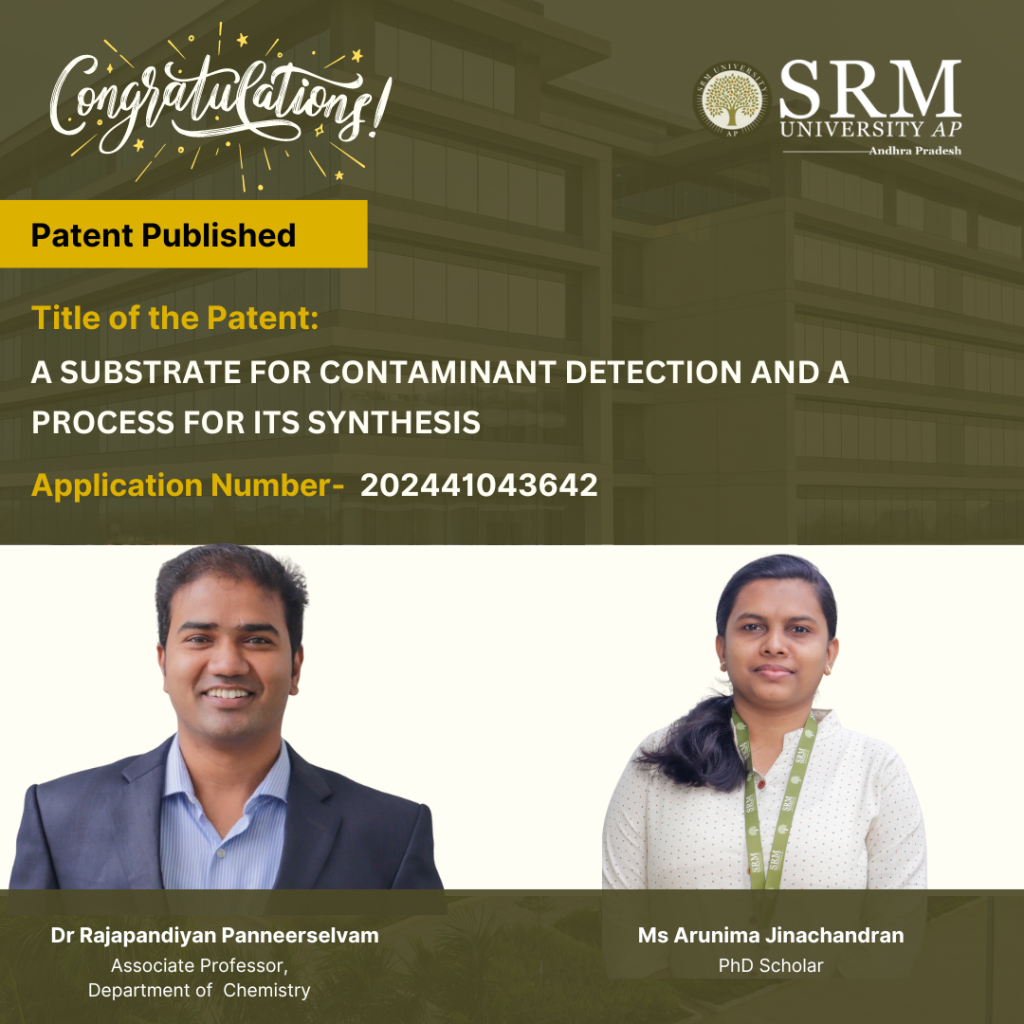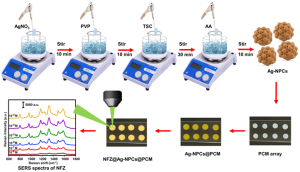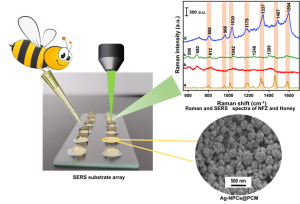
Dr Rajapandiyan P, Associate Professor, Department of Chemistry, and his PhD scholar, Ms Arunima Jinachandran, recently filed and published a patent, “A Substrate for Contaminant Detection and a Process for its Synthesis,” with Application Number: 202441043642 in the Patent Office Journal. The research duo has developed a novel SERS (Surface-Enhanced Raman Spectroscopy) substrate by synthesising silver nanopopcorn and depositing it on a polycarbonate membrane.
This novel substrate demonstrates excellent uniformity, reproducibility, and mechanical stability. It is used for the sensitive detection of toxic antibiotic nitrofurazone on fish surfaces and in honey. This breakthrough could significantly enhance food safety monitoring by providing a reliable and efficient method for detecting harmful substances.
Abstract
Detecting nitrofurazone (NFZ) in aquaculture and livestock is crucial due to its carcinogenic properties. This study presents a flexible polycarbonate membrane (PCM) with three-dimensional silver nanopopcorns (Ag NPCs) for NFZ detection on fish surfaces using surface-enhanced Raman spectroscopy (SERS). The Ag-NPCs/PCM substrate demonstrates a significant Raman signal enhancement (EF = 2.36 × 106) due to hotspots from nanoscale protrusions and crevices. It achieves a low limit of detection (LOD) of 3.7 × 10−9 M, with uniform and reproducible signals (RSD < 8.34%) and retains 70% efficacy after 10 days. The practical detection LODs for NFZ in tap water, honey water, and on fish surfaces are 1.35 × 10−8 M, 5.76 × 10−7 M, and 3.61 × 10−8 M, respectively, demonstrating its effectiveness for various samples. This Ag-NPCs/PCM substrate offers a promising approach for sensitive SERS detection of toxic substances in real-world applications.
Practical Implementation/ Social Implications of the Research
The practical applicability of the proposed Ag-NPCs/PCM SERS substrate is validated by successfully detecting NFZ in various actual samples, such as tap water, honey water, and irregular fish surfaces.
Collaborations – Prof. Tzyy-Jiann Wang – National Taipei University of Technology, Taiwan
Dr Rajapandiyan and Ms Arunima will continue to work towards the development of novel flexible SERS substrates for detecting toxic pollutants in food.



